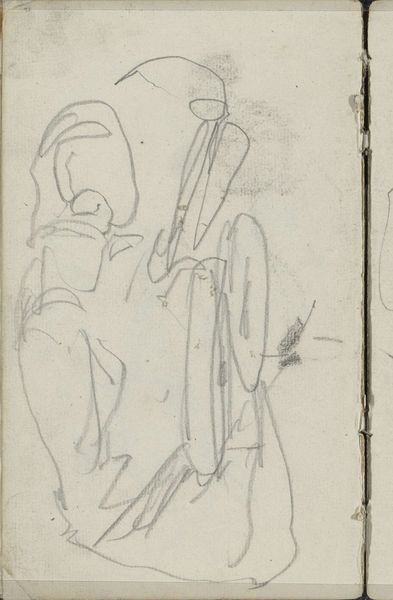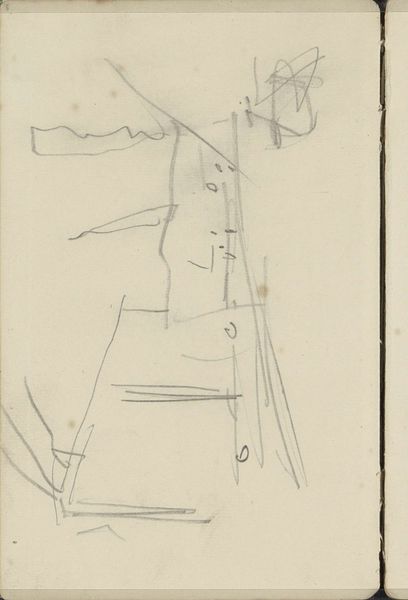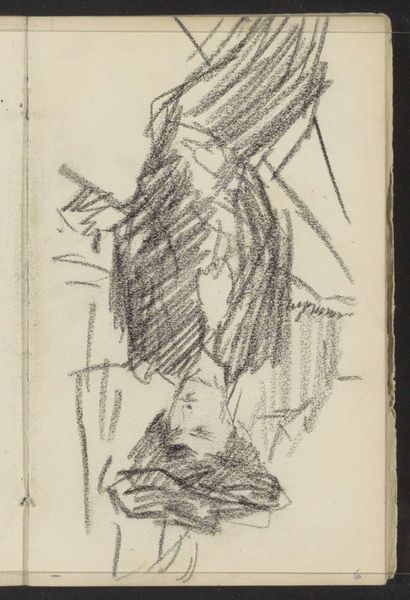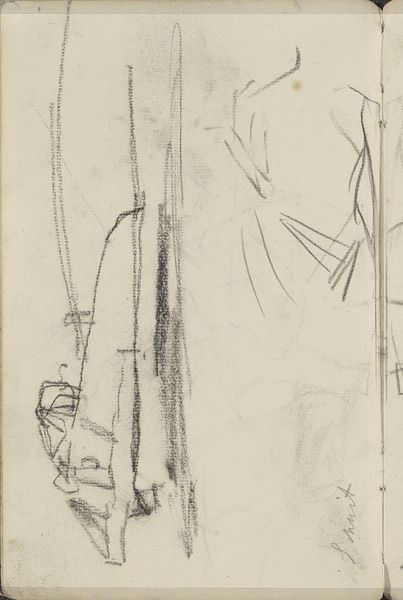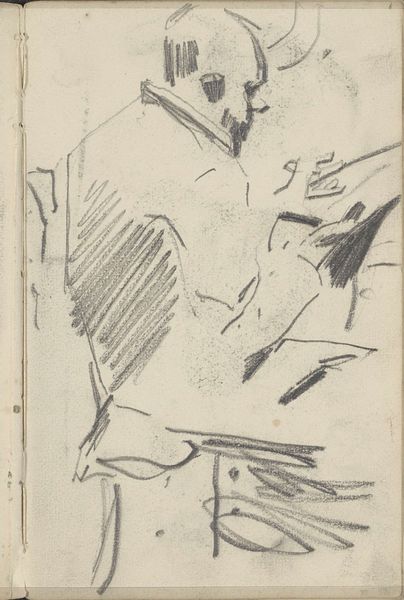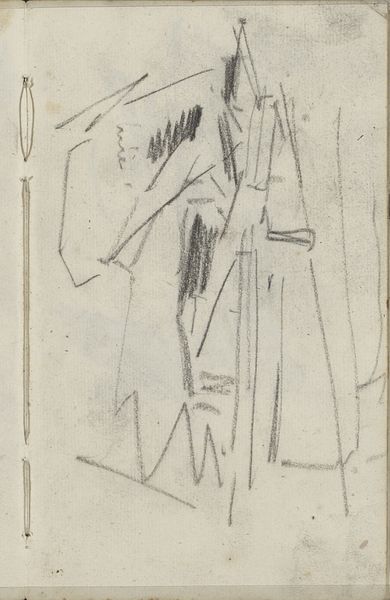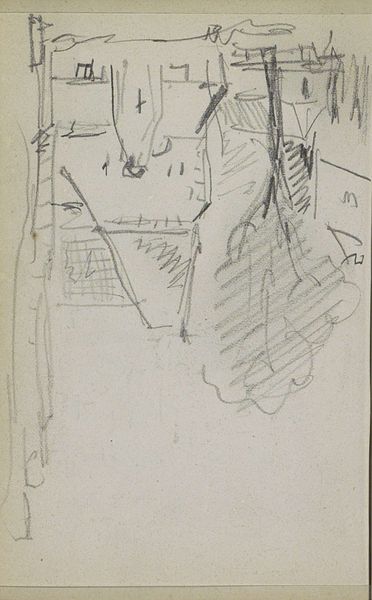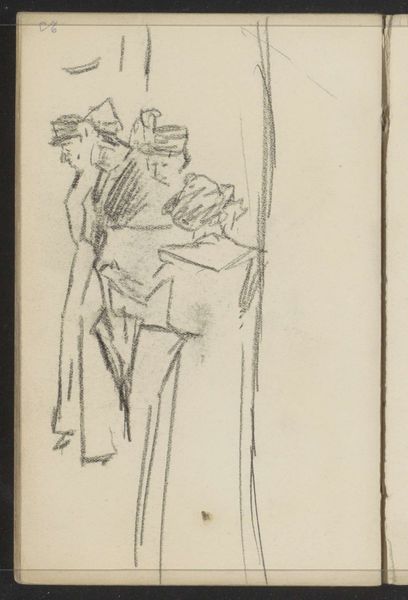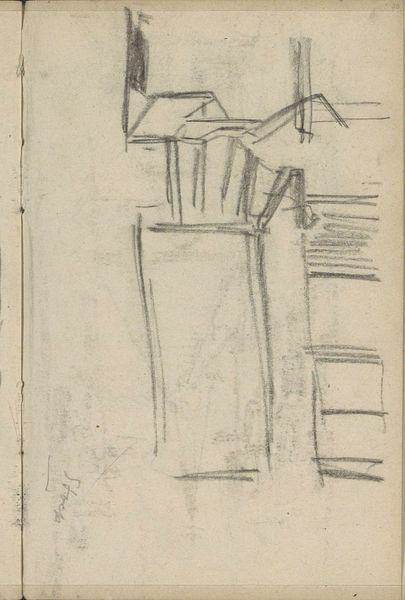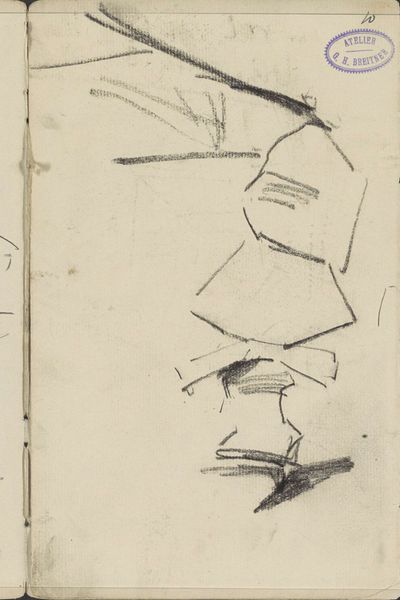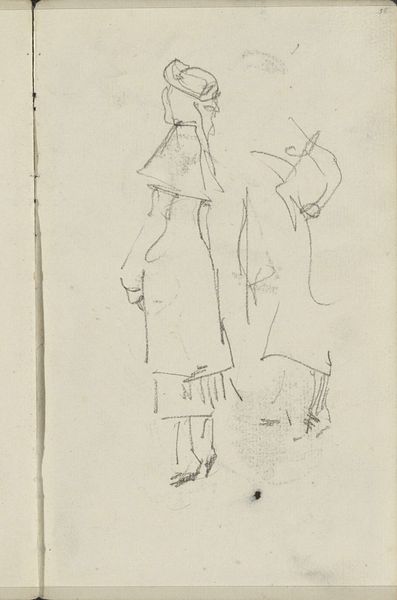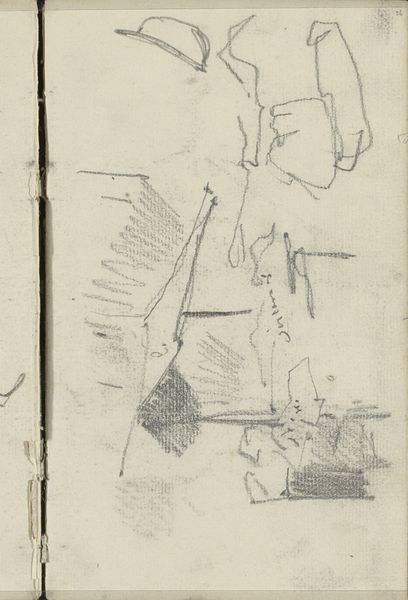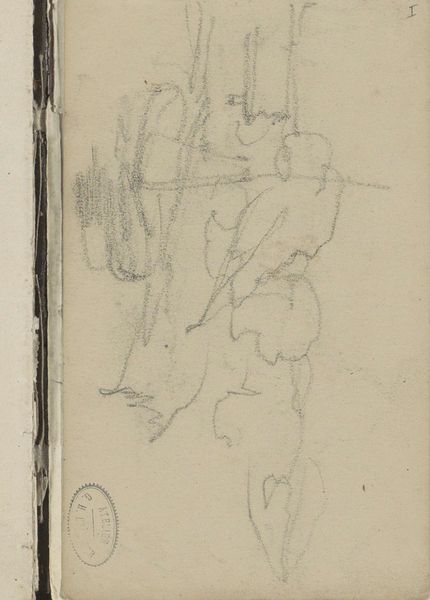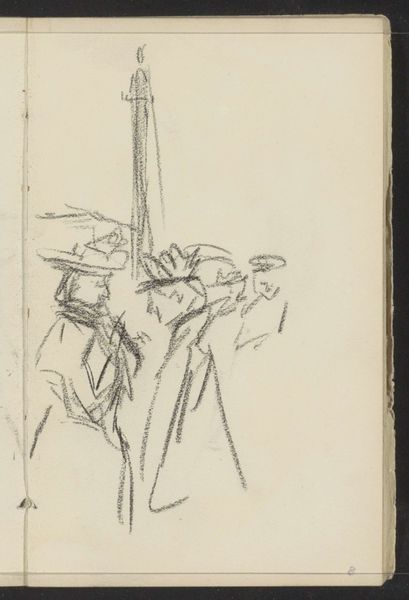
Copyright: Rijks Museum: Open Domain
Curator: Isaac Israels created this compelling pencil sketch titled "Ruiter," sometime between 1887 and 1934. It’s currently held at the Rijksmuseum. Editor: The hurried strokes suggest immediacy and transience, a fleeting moment captured. It gives off a somber, almost ghostly feel with all the heavy shadowing. Curator: Note how Israels employs the starkness of the pencil on paper to create contrasting textures and visual hierarchies. The raking light accentuates the sitter’s form while abstracting details of dress and visage. It really invites consideration of the medium itself. Editor: Yes, but to what end? We might read this "Ruiter" through a lens of gender and class. Consider the possible constraints imposed upon both subject and artist, reflected perhaps in this abbreviated study that seems so gestural. Curator: Ah, but doesn’t the quickness of the lines, the very sparseness, express a modernist aesthetic valuing immediacy and perception over elaborate representation? I see a self-conscious interrogation of academic convention in that deliberate incompleteness. Editor: I suppose that this reading presupposes a privileged detachment, while obscuring other perspectives rooted in power structures inherent in portraiture and artistic patronage. What were the specific circumstances behind Israels sketching "Ruiter"? It would add another level of insight to his work and the model he decided to sketch. Curator: Agreed, any additional context enriches our reception. However, remaining attentive to purely formal qualities helps circumvent subjective projection, maintaining objectivity. Look, for instance, how Israels balances positive and negative space to convey an illusion. Editor: But “objectivity” is often a fiction that masks its own embedded biases! Ultimately, the power to choose and name and to interpret inevitably carries subjective weight and will then be applied by the museum or institution it is stored in. Curator: A fair point. Perhaps appreciating it lies precisely at the intersection, acknowledging artistic agency within circumstantial limitations. Editor: Precisely. It allows for richer, more empathetic conversations to emerge around it.
Comments
No comments
Be the first to comment and join the conversation on the ultimate creative platform.
